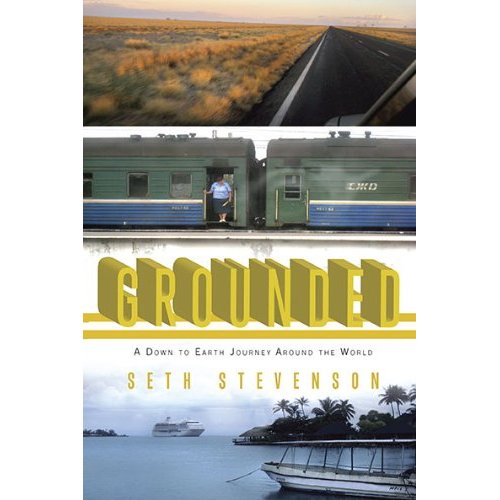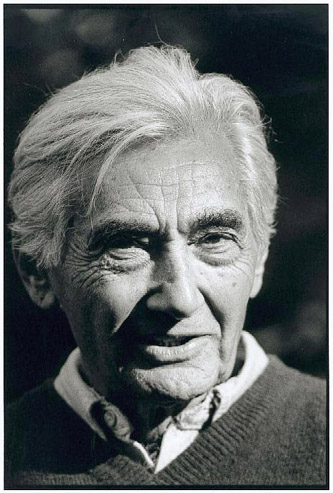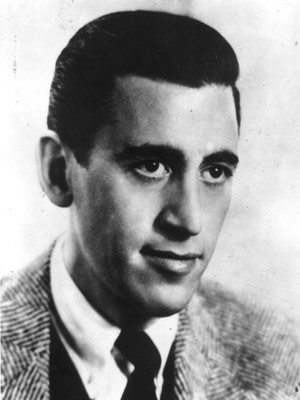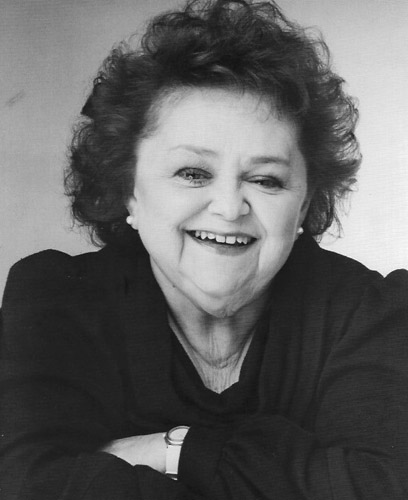In casting news, Colin Farrell (recently signed as Jerry Dandridge 2.0) and Marion Cotillard (currently looking stunning in the trailer for Inception) both sign aboard David Cronenberg’s version of Don DeLillo’s Cosmopolis. “The film, based on Don DeLillo’s novel, will follow a multimillionaire on a 24-hour odyssey across Manhattan. Farrell will play the asset manager who loses all his wealth over the course of one day. Cotillard will play his wife.” Oh, the exquisite, finely-manicured melancholy of the super-rich! Eh, I’ll probably see it anyway.
Tag: Authors
The Bradbury Chronicles.
“Thanks to Fahrenheit 451, now required reading for every American middle-schooler, Bradbury is generally thought of as a writer of novels, but his talents–particularly his mastery of the diabolical premise and the brain-exploding revelation–are best suited to the short form.” As the writer’s 90th birthday approaches this August, Slate‘s Nathaniel Rich pens an appreciation of sci-fi standby Ray Bradbury. “Bradbury is an optimist at heart, but his head knows that hope may not be enough. He’s seen the future, and it’s not all grand pink-stoned chess cities on Mars and houses that tidy up after you…It’s only on reflection, after the stories take up residence in your head and crawl deep into the dark cracks and corners, that the wonder mutates into something closer to dread.“
On the Down Low.

This post should really go out next week, as the book drops next Tuesday, April 6th. But I won’t be around next week (more on that soon), and if I post it tomorrow, y’all might think I’m joking. In any case, Grounded, a tale of travel without planes and the first book by Slate writer (and good friend) Seth Stevenson, will soon be available in a store near you, and I’d suggest picking up a copy. Seth’s a fun, witty guy, and he’s grounded in all the best senses of the term. (And if you like the general tone here at GitM, my guess is you’ll probably cotton to his voice too.) Buy it here or here or even here.
The Activist, the Loner, and the Clairvoyant.



“Dissent is the highest form of patriotism.” — Howard Zinn, 1922-2010.
“It’s funny. All you have to do is say something nobody understands and they’ll do practically anything you want them to.” — J.D. Salinger, 1919-2010. [The Onion mourns.]
“You’re not an actor if you’re just a person that fits into a cute costume. You’re a prop.” — Zelda Rubenstein, 1933-2010.
People Who Died.
“I thought of Jim not as my doppleganger, exactly — that would have been ridiculous. But we were the same age, came from similar backgrounds (his old man was a saloon keeper; mine, a cop), and had something of the same spoiled altar boy’s worldview, and we both worshipped at the dual shrines of the Roundball and the Word.“
In Slate, editor Gerald Howard remembers the late Jim Carroll, best known as author of The Basketball Diaries and the album Catholic Boy. “Tall, slim, athletic, pale, and spectral as many ex-junkies are, Jim was a vivid presence in any setting. He was a classic and now vanishing New York type: the smart (and smartass) Irish kid with style, street savvy, and whatever the Gaelic word for chutzpah is.“
Shireland Security.
“A GCHQ historian, who would not give his name for security reasons, said: ‘JRR Tolkien is known the world over for his novels, but his involvement with the war effort may take a few people by surprise.’” By way of Ed Rants, it seems J.R.R. Tolkien was briefly trained in the art of code-breaking at the Government Codes and Cypher School (GCCS), and was even approached to partake in the Council of Turing in the fields of Bletchley, where presumably his linguistic skills would help in deciphering the Black Speech of the Enemy.
John, son of Arthur, however, took the hobbit’s route…this time. “While he didn’t sign up as was probably intended, he did complete three days’ training and was ‘keen’ to do more. Why he failed to join remains a mystery. There is no paperwork suggesting a motive, so we can only assume that he wanted to concentrate on his writing career.” Perhaps he feared the seductive power of the Palantir, or perhaps he simply had had enough of war.
Absinthe Muse or Demon Rum?
“Much ink has been spilled on the question of why so many writers are alcoholics. Of America’s seven Nobel laureates, five were lushes–to whom we can add an equally drunk-and-disorderly line of Brits: Dylan Thomas, Malcolm Lowry, Brendan Behan, Patrick Hamilton, Philip Larkin, Kingsley Amis, all doing the conga to (in most cases) an early grave…In fact none of these authors would write much that was any good beyond the age of 40, Faulkner’s prose seizing up with sclerosis, Hemingway sinking into unbudgeable mawkishness.“
By way of Dangerous Meta, The Economist‘s Tom Shone considers the artistic merits of novelists sobering up. “The radiance of late Carver is so marked as to make you wonder how much the imperturbable gloom of late Faulkner, or the unyielding nihilism of late Beckett — like the cramped black canvases with which Rothko ended his career — were dictated by their creators’ vision, and how much they were simply symptoms of late-stage alcoholism. This suspicion is open to the counter-charge: this contentment and bliss is all very well, but readers may simply prefer the earlier, messed-up work.“
Atlas Hemmed and Hawed.
“Somewhere in literary-character hell, John Galt is spending an eternity getting beat down by Tom Joad & his pick handle.” Ah, Ayn Rand…come for the vaguely kinky sex, stay for the self-serving, thoroughly reprehensible philosophy. Salon‘s Andrew Leonard asks if the recent economic downturn has discredited Rand’s Objectivism once and for all, prompting — as you might expect — a war in the comments section between the true believers and the gleeful cynics.
Among the many funny comments, this one, reposted from here: “There are two novels that can change a bookish fourteen-year old’s life: The Lord of the Rings and Atlas Shrugged. One is a childish fantasy that often engenders a lifelong obsession with its unbelievable heroes, leading to an emotionally stunted, socially crippled adulthood, unable to deal with the real world. The other, of course, involves orcs.”
Rising Temperatures (and Heavy Mileage).
“Hollywood doesn’t trust smart material. If you show them a really smart script. I actually had a studio head read that script and say: ‘Wow, that’s the best and smartest script that I’ve read since running this studio but I can’t possibly greenlight it.’ I asked why and he says ‘How am I going to get 13-year-olds to show up at the theater?’” Perhaps a bit self-servingly, screenwriter-director Frank Darabont discusses the studio problems he’s had in adapting Fahrenheit 451. “The movie was basically too smart for this person, too metaphorical, etc., etc. It’s a bit of a battle you’ve got to fight.“
In the interview, Darabont also talks about another forthcoming King adaptation he’s working on (my personal favorite King story): The Long Walk. “I’ll be making it, I’m sure, even more cheaply than ‘The Mist‘ because I don’t want to blow the material out of proportion. It’s such a very simple, weird, almost art film-like approach to telling a story. So let’s do it honestly, let’s do it that way. Let’s not turn it into “The Running Man.” So we’ll make it down and dirty and cheap and hopefully good.“
Along the Banks of the Eternal River.
“‘As much as I like his work, I liked him 10 times better,’ said Macomb-based author Tracy Knight. ‘He had this playful relationship with the universe. He was just a pleasure to be around.’” By way of Blivet and Genehack, Philip Jose Farmer, 1918-2009.
